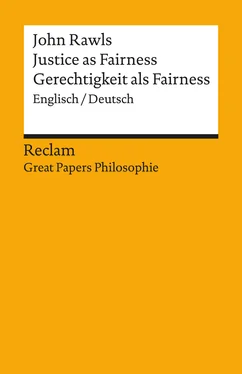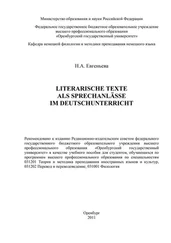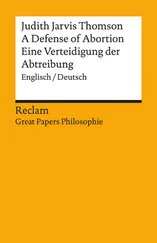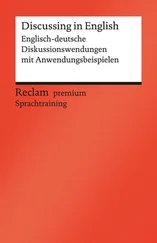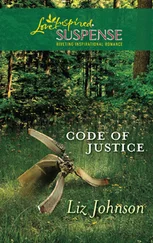Finally, I do not, of course, conceive the several parties as necessarily coming together to establish their common practices for the first time. Some institutions may, indeed, be set up de novo ; but I have framed the preceding account so that it will apply when the full complement of social institutions already exists and represents the result of a long period of development. Nor is the account in any way fictitious. In any society where people reflect on their institutions they will have an idea of what principles of justice would be acknowledged under the conditions described, and there will be occasions when questions of justice are actually discussed in this way. Therefore if their practices do not accord with these principles, this will affect the quality of their social relations. For in this case there will be some [178] recognized situations wherein the parties are mutually aware that one of them is being forced to accept what the other would concede is unjust. The foregoing analysis may then be thought of as representing the actual quality of relations between persons as defined by practices accepted as just. In such practices the parties will acknowledge the principles on which it is constructed, and the general recognition of this fact shows itself in the absence of resentment and in the sense of being justly treated. [54]Thus one common objection to the theory of the social contract, its apparently historical and fictitious character, is avoided.
5. That the principles of justice may be regarded as arising in the manner described illustrates an important fact about them. Not only does it bring out the idea that justice is a primitive moral notion in that it arises once the concept of morality is imposed on mutually self-interested agents similarly circumstanced, but it emphasizes that, fundamental to justice, is the concept of fairness which relates to right dealing between persons who are cooperating with or competing against one another, as when one speaks of fair games, fair competition, and fair bargains. The question of fairness arises when free persons, who have no authority over one another, are engaging in a joint activity and amongst themselves settling or acknowledging the rules which define it and which determine the respective shares in its benefits and burdens. A practice will strike the parties as fair if none feels that, by participating in it, they or any of the others are taken advantage of, or forced to give in to claims which they do not regard as legitimate. This implies that each has a conception of legitimate claims which he thinks it reasonable for others as well as himself to acknowledge. If one thinks of the principles of justice as arising in the manner described, then they do define this sort [56]of conception. A practice is just or fair, then, when it satisfies the principles which those who participate in it could propose to one another for mutual acceptance under the afore-mentioned circumstances. Persons engaged in a just, or fair, practice can face one another openly and support their respective positions, should they appear questionable, by reference to principles which it is reasonable to expect each to accept. [179]
It is this notion of the possibility of mutual acknowledgment of principles by free persons who have no authority over one another which makes the concept of fairness fundamental to justice. Only if such acknowledgment is possible can there be true community between persons in their common practices; otherwise their relations will appear to them as founded to some extent on force. If, in ordinary speech, fairness applies more particularly to practices in which there is a choice whether to engage or not (e.g., in games, business competition), and justice to practices in which there is no choice (e.g., in slavery), the element of necessity does not render the conception of mutual acknowledgment inapplicable, although it may make it much more urgent to change unjust than unfair institutions. For one activity in which one can always engage is that of [58]proposing and acknowledging principles to one another supposing each to be similarly circumstanced; and to judge practices by the principles so arrived at is to apply the standard of fairness to them.
Now if the participants in a practice accept its rules as fair, and so have no complaint to lodge against it, there arises a prima facie duty (and a corresponding prima facie right) of the parties to each other to act in accordance with the practice when it falls upon them to comply. When any number of persons engage in a practice, or conduct a joint undertaking according to rules, and thus restrict their liberty, those who have submitted to these restrictions when required have the right to a similar acquiescence on the part of those who have benefited by their submission. These conditions will obtain if a practice is correctly acknowledged to be fair, for in this case all who participate in it will benefit from it. The rights and duties so arising are special rights and duties in that they depend on previous actions voluntarily undertaken, in this case on the parties having engaged in a common practice and knowingly accepted its benefits.13 It is not, however, an obligation which [60]presupposes a deliberate performative act in the sense of a promise, or contract, and the [180] like.14 An unfortunate mistake of proponents of the idea of the social contract was to suppose that political obligation does require some such act, or at least to use language which suggests it. It is sufficient that one has knowingly participated in and accepted the benefits of a practice acknowledged to be fair. This prima facie obligation may, of course, be overridden: it may happen, when it comes one’s turn to follow a rule, that other considerations will justify not doing so. But one cannot, in general, be released from this obligation by denying the justice of the practice only when it falls on one to obey. If a person rejects a practice, he should, so far as possible, declare his intention in advance, and avoid participating in it or enjoying its benefits.
This duty I have called that of fair play, but it should be admitted that to refer to it in this way is, perhaps, to extend the ordinary notion of fairness. Usually acting unfairly is not so much the breaking of any particular rule, even if the infraction is difficult to detect (cheating), but taking advantage of loop-holes or ambiguities in rules, availing oneself [62]of unexpected or special circumstances which make it impossible to enforce them, insisting that rules be enforced to one’s advantage when they should be suspended, and more generally, acting contrary to the intention of a practice. It is for this reason that one speaks of the sense of fair play: acting fairly requires more than simply being able to follow rules; what is fair must often be felt, or perceived, one wants to say. It is not, however, an unnatural extension of the duty of fair play to have it include the obligation which participants who have knowingly accepted the benefits of their common practice owe to each other to act in accordance with it when their performance falls due; for it is usually considered unfair if someone accepts the benefits of a practice but refuses to do his part in maintaining it. Thus one might say of the tax-dodger that he violates the duty of fair play: he accepts the benefits of government but will not do his part in releasing resources to it; and members of labor unions often say that fellow workers who [181] refuse to join are being unfair: they refer to them as “free riders,” as persons who enjoy what are the supposed benefits of unionism, higher wages, shorter hours, job security, and the like, but who refuse to share in its burdens in the form of paying dues, and so on.
[64]The duty of fair play stands beside other prima facie duties such as fidelity and gratitude as a basic moral notion; yet it is not to be confused with them.15 These duties are all clearly distinct, as would be obvious from their definitions. As with any moral duty, that of fair play implies a constraint on self-interest in particular cases; on occasion it enjoins conduct which a rational egoist strictly defined would not decide upon. So while justice does not require of anyone that he sacrifice his interests in that general position and procedure whereby the principles of justice are proposed and acknowledged, it may happen that in particular situations, arising in the context of engaging in a practice, the duty of fair play will often cross his interests in the [66]sense that he will be required to forego particular advantages which the peculiarities of his circumstances might permit him to take. There is, of course, nothing surprising in this. It is simply the consequence of the firm commitment which the parties may be supposed to have made, or which they would make, in the general position, together with the fact that they have participated in and accepted the benefits of a practice which they regard as fair.
Читать дальше
